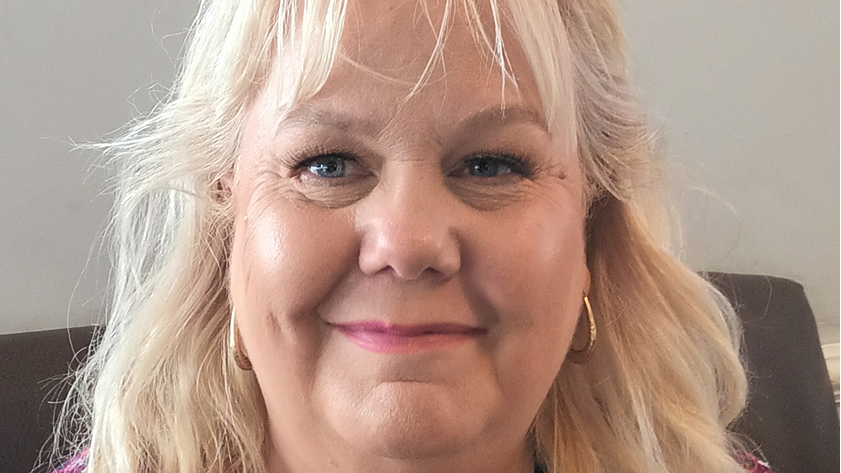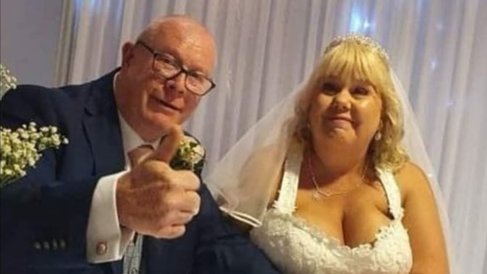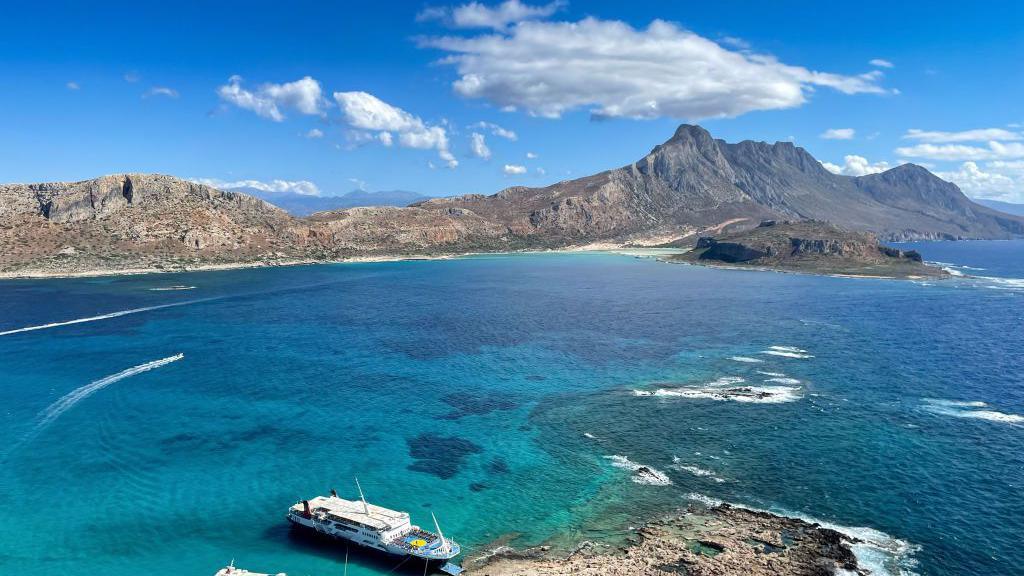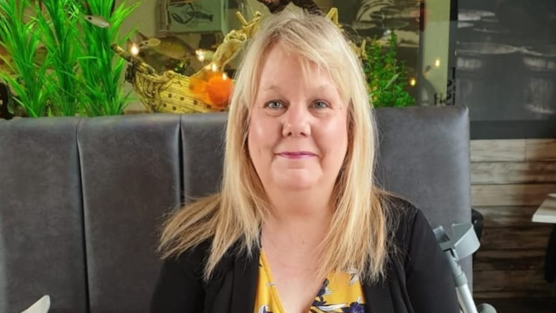Holidaymakers with Legionnaires' take legal action

Donna Jobling was put into an induced coma at a Crete hospital for two weeks
- Published
Two British holidaymakers who contracted Legionnaires' disease in Crete are pursuing legal action against their holiday provider.
Donna Jobling, 57, from Hull, was put into an induced coma after contracting the lung disease while staying at the Sergios Hotel in the Hersonissos area of the Greek island in June.
A month earlier, a 43-year-old woman from South Wales was also taken ill having spent 10 nights at the same hotel, as part of an all-inclusive package bought from EasyJet Holidays.
The company said the safety of its customers "is a priority" and added there was no confirmation the hotel was the source of the infection, but it had taken the "precautionary step of removing it from sale".

Donna Jobling, pictured with husband Sid on their wedding day, flew back from Crete last month
Hudgell Solicitors, which is representing the families of both women, said a European public health agency had confirmed "two separate reports of travel-associated Legionnaires' disease" linked to the Sergios Hotel.
The firm's Anne Thomson said it was not confirmation the hotel was the source of the infection but it "justifies further questioning of the hotel's management and maintenance alongside the information being gathered from those affected, and their families".
Mrs Jobling was on holiday with her husband Sid and another couple, Paula and Nicholas Mason, also from Hull, when she fell ill.
She was in an induced coma in an intensive care unit at Venizeleio Hospital for two weeks before she was flown home last month and admitted to Hull Royal Infirmary.
The 57-year-old was subsequently diagnosed with Guillain-Barré syndrome (GBS), an auto-immune condition, and was transferred to Castle Hill Hospital, Cottingham, for treatment.
Her family have been told it could take 12 months or "even longer" to recover, the law firm said.

Donna Jobling and her husband Sid were on a 14-night holiday with another Hull couple on the Greek island of Crete
It said the woman from South Wales said she became violently sick and was taken to hospital shortly after returning home in May.
"I was so ill during the first week in hospital that I thought I was going to die," she said.
"The doctors told me I was so bad that had I been older, and had I not been as fit as I am, it would probably have killed me."
The woman said she felt "delusional and had a really high fever" while she was waiting for a diagnosis but has "slowly got better day by day" after being discharged in June.
She said she "felt so angry" after hearing of Mrs Jobling's plight.
Solicitors letters have been issued to EasyJet Holidays.
Ms Thomson said there was justification for "a full and transparent investigation into how water systems have been managed and maintained at the hotel, when the systems were last inspected and proved to meet the required standards, and any information the hotel has on reported illnesses of guests staying there since April of this year".
An EasyJet Holidays spokesperson said: "As this is now an ongoing legal case, it would be inappropriate for us to comment further."
However, the company maintained it "immediately took action and contacted customers who were already staying in the hotel, or due to travel in the next four weeks, to provide alternative hotel options" as soon as it was made aware of reports of the illness.
"We also sent communications to all customers who stayed in the hotel and returned home 21 days before we were made aware, confirming UKHSA and NHS guidance," it added.
Legionnaires' disease
Legionnaires' disease is a lung infection most commonly contracted through the inhalation of water droplets containing legionella bacterium.
It is usually caught in places such as hotels, hospitals and office buildings from contaminated air conditioning systems, but it can also be contracted from spa pools and hot tubs.
Symptoms include shortness of breath, a high temperature and chest pain or discomfort. The disease can induce pneumonia and other respiratory illnesses, which can be life-threatening.
Related topics
- Published23 June
